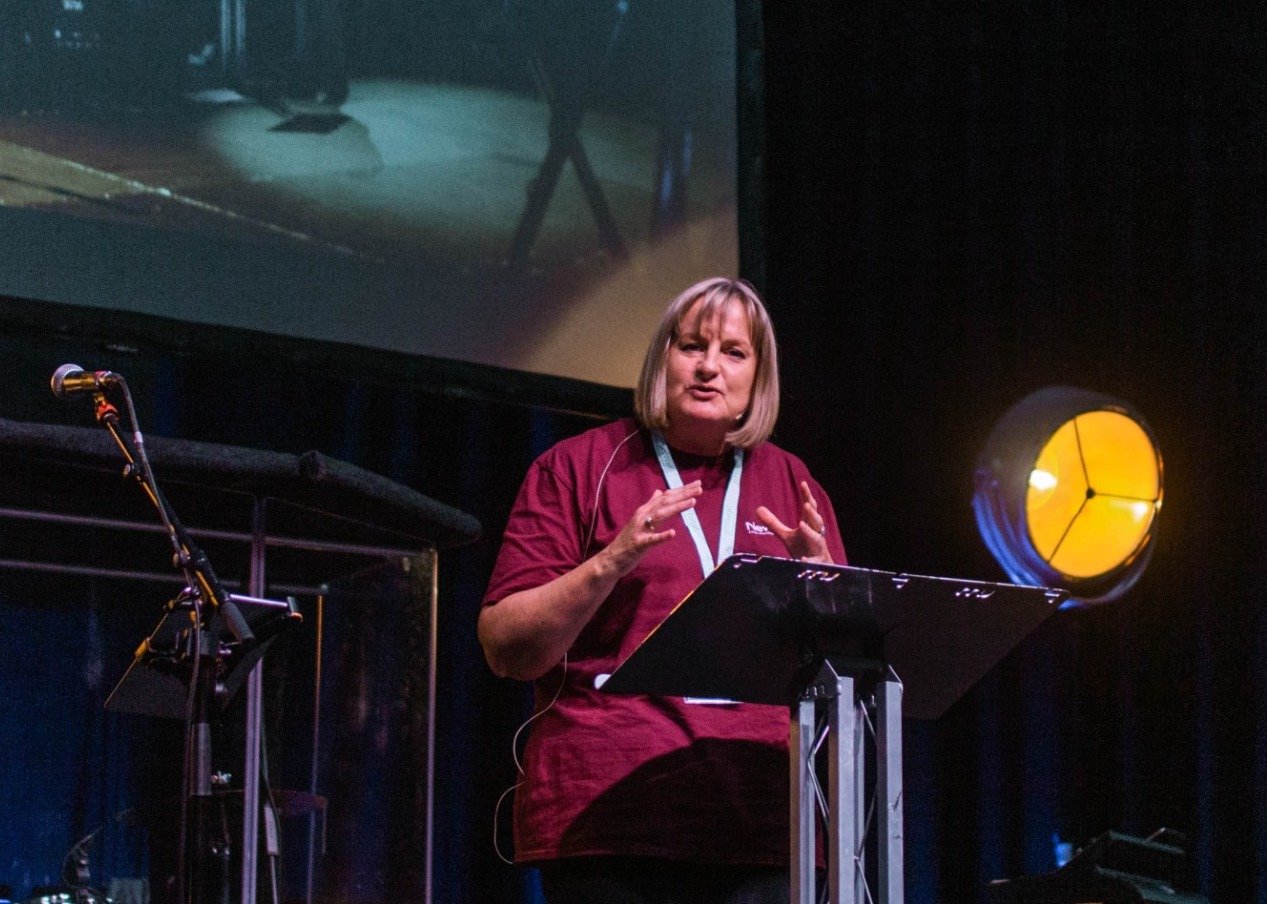Sligo22: Reading with Imagination
At New Wine in Sligo, Ali Calvin introduced a practical seminar to explore how we can enter a Bible passage with sanctified imagination - allowing the Word of God to come to life in a creative way. (Notes taken during Week B)
Do you have imagination? Let’s test it. Close your eyes.
“Do not think about a bottle of coke.” What have you just thought about? A bottle of coke. What colour is the label? What colour the lid? You imagined it, right?
If you have no imagination, you may struggle with this, however I’d suggest we all do. And if we haven’t found it, God wants to release it to us. Does God have an imagination? Aren’t we made in the image of God?
Where have we seen the imagination of God? How did God know everything before it became? He saw it in his mind’s eye. He imagined it before he spoke it into being. God has an imagination, and if we’re made in His image, He’s given us imagination and He’d like us to use it.
Some people say this is dangerous. Some people say we need to read the word with intellect and understanding. But this is not that. There is a place for that, looking at the context, the original setting, what it’s speaking to me now, exactly what it is saying. Absolutely. And it’s an important place. This is not to replace that, but it’s different from that.
Jesus taught with imagination? Think about parables: He painted pictures. Through the picture people understood what He was saying. Jesus invited people to use their imagination to hear him.
There’s a danger with imagination, yes, but there’s danger in using your mind too. But that’s why we talk about reading with sanctified imagination. Tozer talked about descending with the mind into the heart.
It’s asking God to sanctify our imagination, so the things we think about are things he gives us.
What is reading with imagination?
It’s putting yourself in the story. Maybe one time you’re Zacchaeus. Maybe another time you’re in the crowd. Maybe another time you’re Peter, or John. You’re imagining yourself there. You’re closing your eyes and trying to see the scene. When we can see it, it can speak to us. This morning we read about how Job said, “Now my eyes have seen you”. Reading with imagination is one of the ways that allows me to encounter Him. To enter into discussion with Him.
I could talk about it, but we’re here to do it. So let’s listen to a story you know really well: John 6: the feeding of the 5000.
The setting: Jesus crossed the sea of Galilee.
What’s Jesus trying to do? He’s healed many, but there’s always more. The passage says he’s trying to get away, have some downtime. Then Jesus looked up and saw a great crowd coming toward Him. And He said, “Where shall we buy bread?” They’re up on a mountain, but Jesus always wants to provide for his people.
Andrew mentions the boy with two barley loaves and five fish. I wonder how he knew about the boy’s lunch.
Imagination is looking for the details that aren’t there. Where was his mummy? Is the boy by himself? Did he bring the lunch on his own initiative? Exegesis- the answers aren’t in the text. But we’re using our imagination to speak into the text. We can’t say it definitively, but imagination enables us to hear God in a different way.
Jesus gave them as much as they wanted. And He said, “Let nothing be wasted.” They gathered the pieces leftover. Let’s now enter it with our imagination. (Read the passage for yourself slowly). John 6:1 - 13
Afterward:
Did anyone hear anything that was contrary to the word of God? That’s another check to put on it. When we’re doing this, and afterward, we can ask, “Is that consistent with the heart of Jesus?” And if it isn’t, you need to question it and take it to someone you trust.
We have to know the written word is the final authority. We can’t give imagination a higher place.
You can do that with any story. Think about the cross. You’re journeying to the cross. You’re imagining the smells, the sounds, seeing Jesus struggle with his cross, seeing it raised up with Jesus on it. You remember it when Jesus sees John with his mother. He then turns to you. What does he say to you? You can do this yourself at any time.
It’s the living word.

